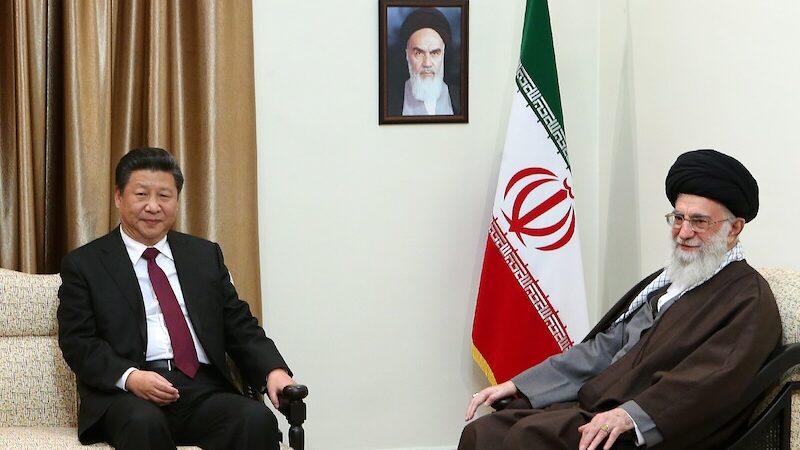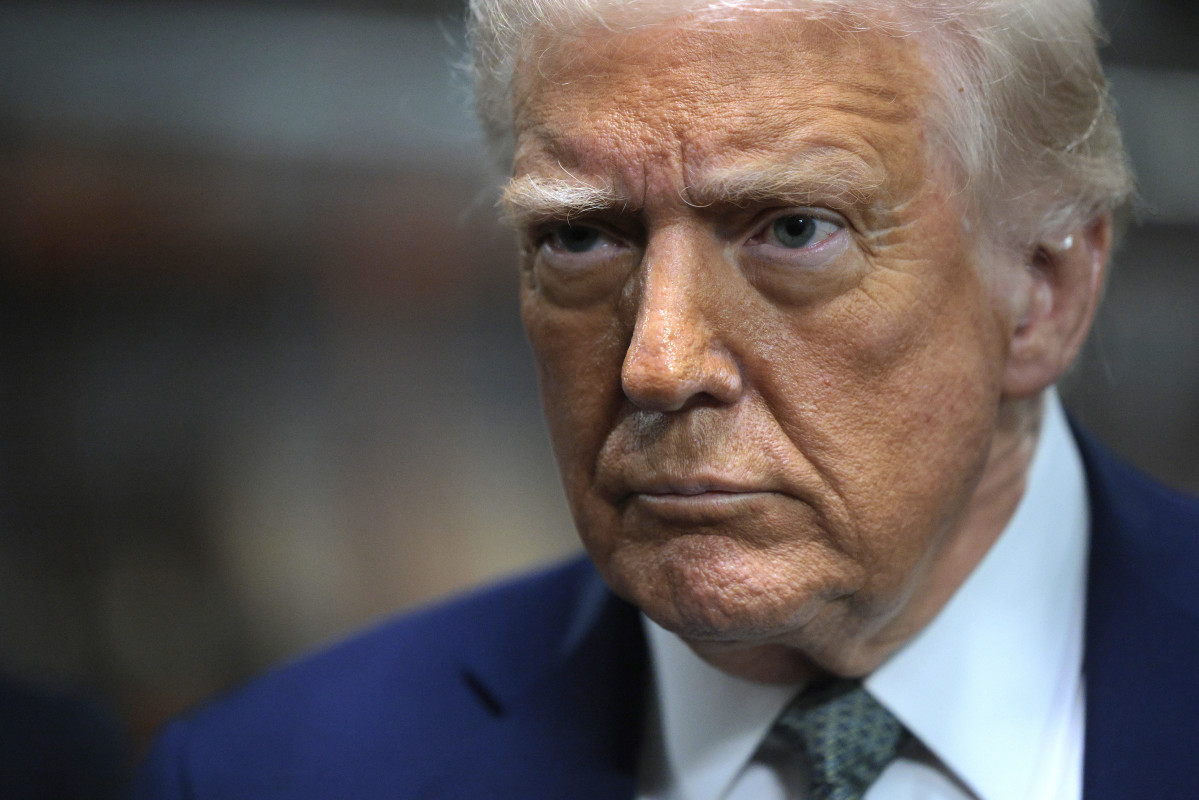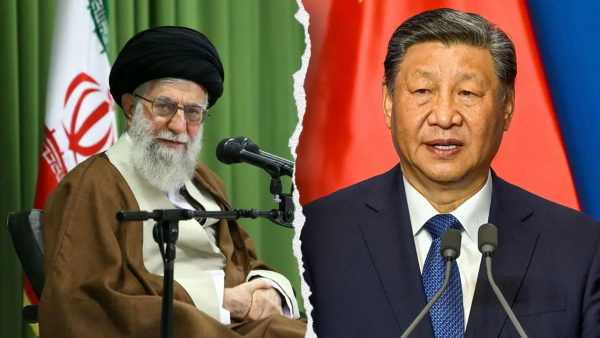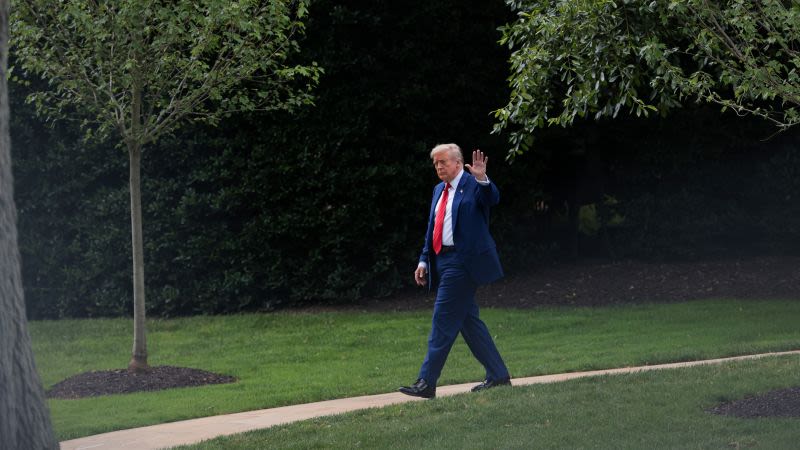Middle East Power Shift: How China Gains From America's Challenges

Welcome to your ultimate source for breaking news, trending updates, and in-depth stories from around the world. Whether it's politics, technology, entertainment, sports, or lifestyle, we bring you real-time updates that keep you informed and ahead of the curve.
Our team works tirelessly to ensure you never miss a moment. From the latest developments in global events to the most talked-about topics on social media, our news platform is designed to deliver accurate and timely information, all in one place.
Stay in the know and join thousands of readers who trust us for reliable, up-to-date content. Explore our expertly curated articles and dive deeper into the stories that matter to you. Visit Best Website now and be part of the conversation. Don't miss out on the headlines that shape our world!
Table of Contents
Middle East Power Shift: How China Gains from America's Challenges
The Middle East is witnessing a dramatic power shift, with China subtly but effectively capitalizing on America's waning influence and growing regional challenges. This isn't a simple case of one superpower replacing another; rather, it's a complex realignment fueled by economic opportunities, strategic partnerships, and a perceived decline in US commitment to the region. The implications are far-reaching, impacting global energy markets, geopolitical stability, and the future trajectory of the Middle East itself.
America's Waning Influence: A Shifting Landscape
For decades, the United States has been the dominant force in Middle Eastern politics, playing a crucial role in regional security and economic development. However, recent years have seen a decline in US engagement, partly driven by domestic priorities, the costly wars in Iraq and Afghanistan, and a growing weariness among Americans regarding prolonged military interventions abroad. This shift has created a vacuum, which China is expertly filling.
China's Strategic Ascendancy: Economic Ties and Diplomatic Engagement
China's approach differs significantly from that of the US. Instead of military intervention, China focuses on economic diplomacy and strategic partnerships. This strategy is multifaceted:
-
The Belt and Road Initiative (BRI): This massive infrastructure project significantly boosts China's influence across the Middle East, investing heavily in ports, railways, and other crucial infrastructure. This provides China with not only economic leverage but also strategic access to vital trade routes. (Example external link – replace with relevant and reputable source).
-
Energy Security: China's insatiable energy appetite makes the Middle East's oil and gas reserves crucial. By forging strong economic ties with energy-rich nations, China secures a reliable energy supply and reduces its reliance on other global players.
-
Diplomatic Outreach: Unlike the US, China often adopts a non-interventionist stance in regional conflicts, preferring to maintain neutrality and build relationships with a broad range of actors, including countries often viewed as adversaries by the West. This pragmatic approach allows China to cultivate deeper partnerships.
-
Technological Investment: China is increasingly investing in technological infrastructure and development in the Middle East, further strengthening its economic and political foothold. This includes collaborations in areas such as 5G technology and artificial intelligence.
Geopolitical Implications: A Multipolar Middle East?
This power shift has profound geopolitical implications. The rise of China's influence doesn't necessarily mean the complete withdrawal of the US, but it does point towards a more multipolar Middle East, where several major players – including Russia and regional powers – exert significant influence. This could lead to:
- Increased Competition: Greater competition between China and the US for influence could destabilize already fragile regions.
- New Alliances: Countries in the Middle East may find themselves navigating complex relationships, balancing ties with both China and the US.
- Shifting Geopolitical Alignments: Traditional alliances and partnerships could be renegotiated or even broken as countries adapt to this new dynamic.
The Future of the Middle East: Navigating a New Era
The changing dynamics in the Middle East present both opportunities and challenges. While China's economic engagement offers potential benefits, it also raises concerns about debt sustainability, environmental impacts, and the potential for increased authoritarianism. The future of the region will depend on how its nations navigate this complex new landscape, balancing competing interests and forging a path towards stability and prosperity. Careful observation and analysis of this ongoing power shift are crucial to understanding the future of global geopolitics.
Call to Action: Stay informed about the evolving geopolitical situation in the Middle East by following reputable news sources and analytical institutions. Understanding these shifts is crucial for anyone interested in international relations, economics, and global security.

Thank you for visiting our website, your trusted source for the latest updates and in-depth coverage on Middle East Power Shift: How China Gains From America's Challenges. We're committed to keeping you informed with timely and accurate information to meet your curiosity and needs.
If you have any questions, suggestions, or feedback, we'd love to hear from you. Your insights are valuable to us and help us improve to serve you better. Feel free to reach out through our contact page.
Don't forget to bookmark our website and check back regularly for the latest headlines and trending topics. See you next time, and thank you for being part of our growing community!
Featured Posts
-
 Voice Of America Overhaul Kari Lake Implements Trumps Staff Cuts
Jun 22, 2025
Voice Of America Overhaul Kari Lake Implements Trumps Staff Cuts
Jun 22, 2025 -
 The Enduring Power Of Jaws A Look At Shark Attacks And Public Perception
Jun 22, 2025
The Enduring Power Of Jaws A Look At Shark Attacks And Public Perception
Jun 22, 2025 -
 From Bramble Bush To Tze Elim Bet Unraveling The Israeli Operations Failure And Its Devastating Impact
Jun 22, 2025
From Bramble Bush To Tze Elim Bet Unraveling The Israeli Operations Failure And Its Devastating Impact
Jun 22, 2025 -
 Assisted Dying Bill Mps Support In Crucial Commons Vote
Jun 22, 2025
Assisted Dying Bill Mps Support In Crucial Commons Vote
Jun 22, 2025 -
 Lockheed Martin Stock Lmt First American Bank Increases Ownership
Jun 22, 2025
Lockheed Martin Stock Lmt First American Bank Increases Ownership
Jun 22, 2025
Latest Posts
-
 Mlb Announces Suspensions After Dodgers And Padres Series Finale Incident
Jun 23, 2025
Mlb Announces Suspensions After Dodgers And Padres Series Finale Incident
Jun 23, 2025 -
 Former Mlb Greats Political Stand Trump Support Hinges On War Decision
Jun 23, 2025
Former Mlb Greats Political Stand Trump Support Hinges On War Decision
Jun 23, 2025 -
 Chinas Response To The Iran Conflict A West Dependent Equation
Jun 23, 2025
Chinas Response To The Iran Conflict A West Dependent Equation
Jun 23, 2025 -
 The Making Of Jaws A Photographic Retrospective
Jun 23, 2025
The Making Of Jaws A Photographic Retrospective
Jun 23, 2025 -
 Siempre Un Pacificador Por Que Trump Decidio No Atacar Iran
Jun 23, 2025
Siempre Un Pacificador Por Que Trump Decidio No Atacar Iran
Jun 23, 2025
